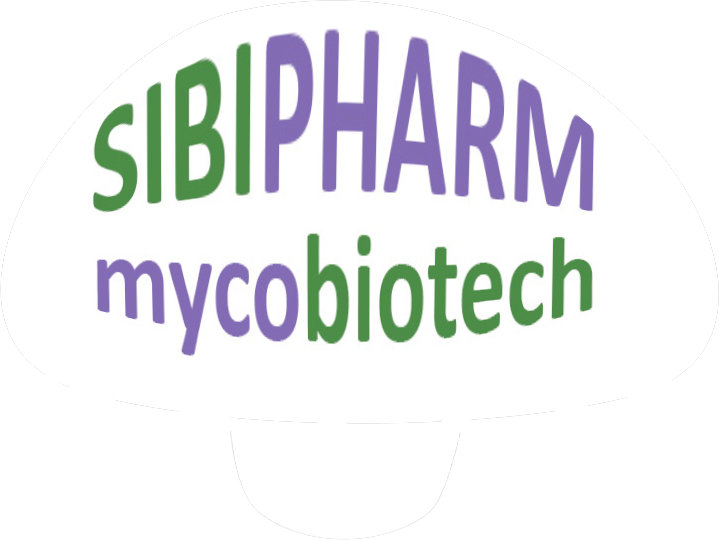Interest in medicinal mushrooms for cognitive enhancement has grown significantly in recent years, especially among people over 30 who are looking to maintain brain health and slow down age-related changes. Medicinal mushrooms such as lion’s mane (Hericium erinaceus), chaga (Inonotus obliquus), reishi (Ganoderma lucidum), and cordyceps (Cordyceps sinensis) have been the subject of numerous studies aimed at studying their effects on memory, concentration, and neuroplasticity.
Cognitive Problems in Older Adults
As we age, cognitive functions such as memory, attention, and learning ability can decline. This is due to various factors, including decreased neuroplasticity, decreased neurogenesis, and the accumulation of oxidative stress in brain cells. Modern lifestyles, including stress, lack of sleep, and poor nutrition, can accelerate these processes. As a result, more and more people are looking for natural ways to support cognitive health, which has led to increased interest in natural remedies, including mushrooms with potential nootropic properties.
Lion’s Mane: Boosting Neurogenesis
One of the most well-known medicinal mushrooms used to improve cognitive function is Lion’s Mane. This mushroom has gained recognition for its ability to stimulate the production of nerve growth factors (NGFs), proteins that play a key role in maintaining the health and regeneration of neurons. Animal studies have shown that Lion’s Mane extract helps improve memory and cognitive function by increasing neurogenesis, the process of creating new nerve cells.
In particular, a 2011 study published in the Journal of Agricultural and Food Chemistry demonstrated that Lion’s Mane improved cognitive function in mice with age-related memory impairment. The authors of the study suggested that the mushroom’s active components may prevent neurodegeneration and even stimulate the growth of new neurons. Although human studies are limited, preliminary clinical trial results have also shown improvements in short-term memory and concentration in middle-aged people.
Reishi: Antioxidant and Anti-Inflammatory Protection
Reishi, also known as the “mushroom of immortality,” has been used in traditional Chinese medicine for thousands of years and has many health benefits, including immunomodulatory and anti-inflammatory effects. In the context of cognitive health, reishi has gained attention for its antioxidant and neuroprotective properties.
Oxidative stress and inflammation in the brain have been linked to cognitive decline and the development of neurodegenerative diseases such as Alzheimer’s and Parkinson’s. Research suggests that reishi may reduce oxidative stress in neurons, protecting them from damage and improving overall cognitive performance. For example, a 2019 study from China found that reishi extract was able to slow the progression of cognitive impairment in aging mice by reducing inflammation in the hippocampus, a region of the brain responsible for memory and learning.
Cordyceps: Improving Energy Metabolism and Memory
Cordyceps, known for its ability to improve energy metabolism and increase endurance, also demonstrates a positive effect on cognitive function. In particular, its active components, such as cordycepin and adenosine, can help improve blood supply to the brain, which is necessary for the normal functioning of neurons and the prevention of cognitive impairment.
A study published in Neurochemical Research in 2018 showed that cordyceps improves cognitive function in mice suffering from hypoxic conditions (lack of oxygen). The mushroom not only improved memory, but also helped to increase concentration and improve neuroplasticity. This study opens up the possibility of using cordyceps in the prevention of cognitive impairment in people exposed to hypoxia or suffering from chronic fatigue.
Combination of mushrooms and other nootropics
Modern research shows that the combined use of various medicinal mushrooms can have a synergistic effect on cognitive function. For example, combining lion’s mane and reishi can simultaneously stimulate neurogenesis and reduce inflammation, which may be especially beneficial for people over 30 who want to maintain cognitive health for years to come.
Some researchers are also exploring combining mushrooms with traditional nootropics like ginkgo biloba and rhodiola rosea to enhance their positive effects on the brain. For example, in one 2020 study, combining lion’s mane and ginkgo extracts showed greater improvements in short-term memory and processing speed than either component alone.
Safety and Possible Side Effects
While most studies demonstrate the positive effects of medicinal mushrooms on cognitive function, it is important to consider their safety and possible side effects. Medicinal mushrooms are generally considered safe for most people, especially when taken in moderate doses. However, as with any bioactive substance, allergic reactions or individual intolerance are possible. For people with chronic conditions or those taking prescription medications, it is important to consult with a doctor before taking medicinal mushroom supplements. For example, reishi may affect blood clotting, which is important to consider for people taking blood thinners.
The Future of Medicinal Mushroom Research
Despite the promising results, more research, especially human clinical trials, is needed to better understand the mechanisms of action of medicinal mushrooms and their long-term effectiveness. Future research may also focus on determining optimal dosages, studying interactions with other drugs, and identifying new active components in different types of mushrooms.
Conclusion
Medicinal mushrooms such as lion’s mane, reishi, and cordyceps offer promising opportunities for improving cognitive function, especially in people over 30. These mushrooms have the ability to stimulate neurogenesis, protect neurons from oxidative stress, and improve blood flow to the brain. However, as with any natural remedy, their use requires caution and further research. People looking to maintain cognitive health as they age may want to consider incorporating medicinal mushrooms into their daily routine, but it is important to do so consciously and in consultation with a healthcare professional.
Author: Dr. Petr Mělník, doctor of integral medicine






